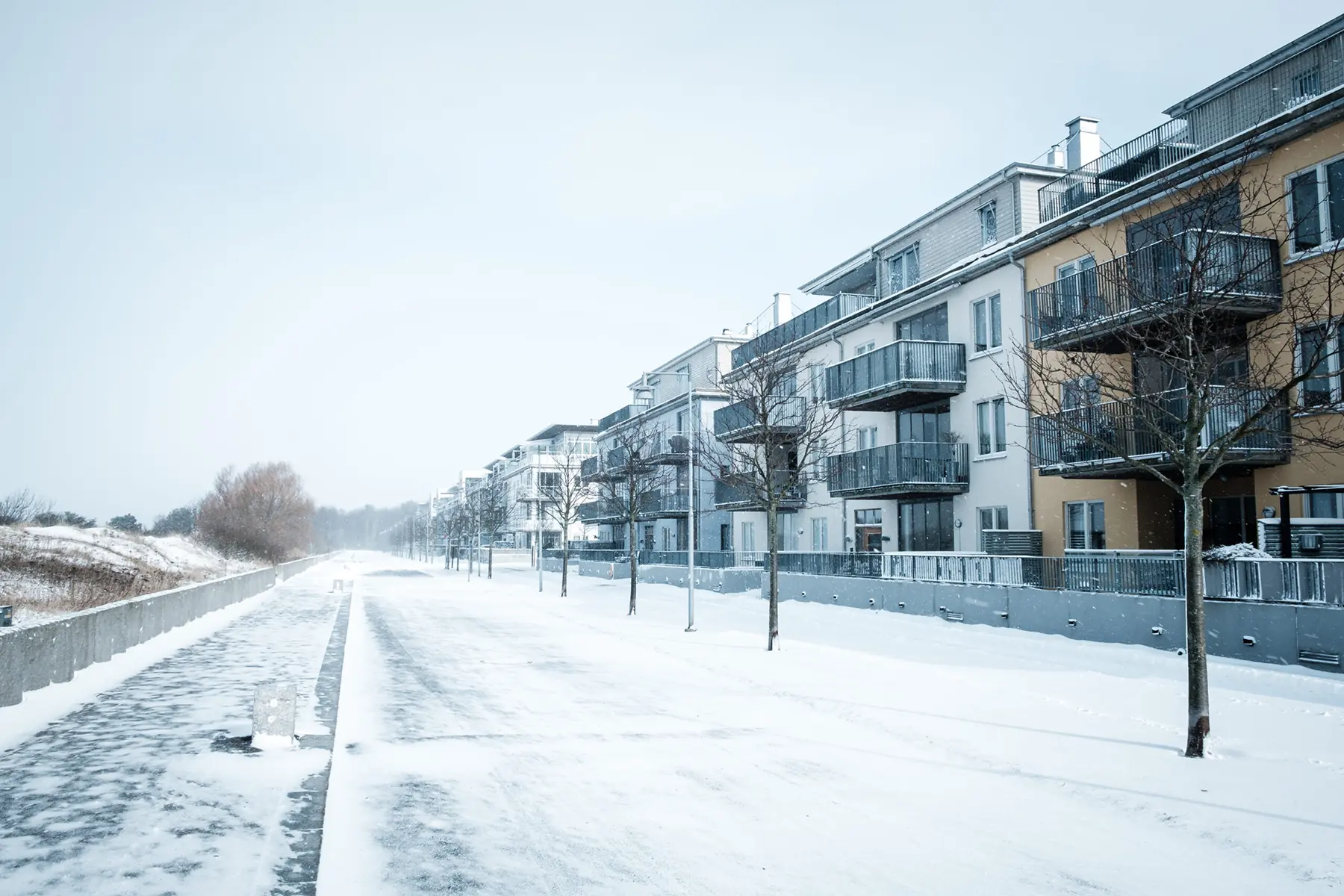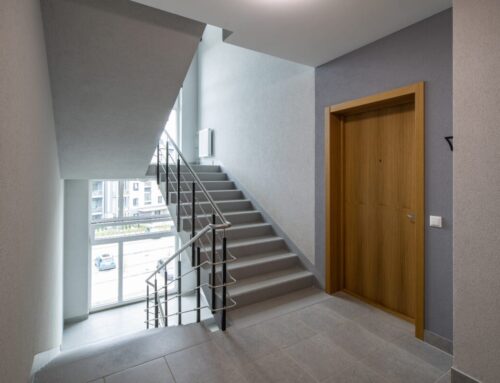Belinda Bagnall from Residentsline looks at how flat owners can prepare for winter.
As we approach the colder months, it’s time for flat owners to shift their focus to winter preparations.

Concerns about heating, potential leaks, and dampness become top priorities. To ensure you’re ready, here’s a reminder of proactive steps you can take to safeguard your flat during the winter season.
Heating
The temperature may not have dropped into the minuses quite yet, but those cold nights are coming. Now is a great time to take a close look at your existing heating system, and maybe to consider an upgrade if finances allow.
- Test your heating system
Let your fellow residents know that a test is planned and then fire up the boiler for a few hours. Hopefully, everything will kick into gear as expected, but better to assess that assumption now than when the cold snap hits. You should also reacquaint yourself with any timers you can make use of, so you are ready when the time comes.
- Service your boiler
Book in for an autumn boiler service. This way, you can have the peace of mind that everything meets the required standards, and you won’t find yourself waiting in line when a surge of people inevitably schedules their services as the weather gets colder.
- Bleed radiators
An often overlooked, straightforward action. Ensure that you attend to the communal areas and request your residents to attend to their own.
- Consider system upgrade
If your system is outdated or inefficient, consider upgrading before December rolls around. If it cannot be done now, make sure it is part of your planned maintenance program for summer 2024.
Leak Prevention
Leaks are more prevalent in winter due to active heating systems, frozen pipes, and wet weather.
- Protect your pipes
Insulating, or lagging, your pipes can help retain warmth and prevent them from freezing. You should also keep heating on at a consistently low level during very chilly weather. It is always worth a visual inspection of the outside of the property too- small cracks in brickwork can allow the cold to set into your pipes.
- Locate stopcock
We’re certain you know the location, but if you don’t, it’s time to discover it! It’s also a great idea to make sure any staff members are aware and inform your residents as well.
- Roof check
A roof inspection is a great idea at this time of year. Any weak areas can be addressed before the wind picks up and the rain thunders down. Check to see if one has recently been completed.
Damp Prevention
The blissful summer weather may have dried the building out nicely, but damp, freezing air is coming. Drying clothes inside becomes unavoidable, cold walls produce condensation at the speed of light and expensive bills can discourage people from using their heating as much as they should. Do what you can to prevent damp now and keep winter as stress-free as possible.
- Guttering
Always have the guttering cleared and consider installing protectors that stop leaves from gathering in the first place. This will stop water overflowing and rolling down the walls, causing ingress.
- Check windows and doors for venting and loose seals
Through summer the windows may have been vented and forgotten about- check the communal areas and ask your residents to do the same in their units, closing all windows. Checking the seals around windows and doors can also prevent draughts- replace any faulty ones as soon as possible.
- Upgrade windows and doors
If the block could do with a windows and doors upgrade and the budget allows, see if this can be done asap. If not, ask to add it to the plans for 2024 to make next winter cosier and more energy efficient.
- Educate residents re drying clothes indoors
Using dryers, radiators and airers to dry clothes indoors is unavoidable during the winter. The only option available is to instruct fellow residents to run an additional spin cycle before drying their clothes, encourage the use of dehumidifiers if possible, and consider investing in heated clothes airers. Keeping tumble dryers in top-notch condition also helps e.g., cleaning filters regularly, as does adding a dry towel to the load.
- Ventilate
Encourage ventilation throughout the block. On cold but dry days, windows should be opened for a short amount of time to help air circulate. When cooking or showering, steam should be kept in the kitchen or bathroom and windows should be open or extractor fans used to clear the moisture. Furniture should not be touching the walls- leave at least an inch gap so air can move freely.
Outdoors
If your block has grounds attached, checking off some maintenance tasks can also apply out there too.
- Check trees
Look at any trees on the property to check for weak or loose branches that could easily come away in high winds. Remove them and consider mentioning removing entire trees if they don’t seem sturdy.
- Check fences
Give your fences a good shake- any weak panels or supports should be replaced before the next storm rolls in.
- Check lights
Make sure external lighting is all in working order. The long dark nights and slippery pathways mean that accidents are more likely to occur. Decent, motion-activated lighting is necessary.
- Tighten security
It is a sad fact that crime rates tend to climb in winter. Early darkness providing some cover may the cause. Double check your windows, doors, locks, and gates to make sure you are prioritising the safety of yourself and fellow residents. Head to the Residentsline website for information on all of our products and services or, if you’d like to speak to one of our fantastic, specialist team, give us a call on 0800 281 235.




Leave A Comment